As children, we were exposed to all kinds of mythology and folklore, from reading fairy tales before bed to studying famous myths in school. But there’s so much more to these stories than the contents of picture books. For centuries, scholars have turned their gaze to some of humanity’s oldest myths and legends to answer questions about human nature. Why do we return to the same kind of stories over and over?
Each author on this list uses folklore and mythology as a jumping off point to explore more about the cultures of the distant past and to comment on our present. From new takes on the epics of Ancient Greece to histories of witches and vampires, here are 12 epically enthralling books about folklore and mythology.

Pandora's Jar
Women have always played a complex role in Greek mythology. From Hera’s jealous rage to Jocasta’s unfortunate role in the downfall of her son-turned-husband Oedipus, women are both integral to the stories, but also frequently villainized. In Pandora’s Jar, author, classicist, and comedian Natalie Haynes asks readers to take a second look at the women in these ancient stories. She re-examines the myths from a modern lens, painting fuller portraits of women like Pandora and Medusa than ever before in ways both informative and funny.
.jpg?w=640)
The Japanese Myths
Throughout ancient history, Japanese mythology was always evolving as regional practices were influenced by Shinto and the arrival of Buddhism. Modern Japan is equally influenced by mythology. As perceptions of ancient stories change, it is reflected in the nation’s cultural output, from anime to horror movies to video games. In The Japanese Myths, Joshua Frydman explores these ever-changing ancient stories while also examining their impact on Japanese culture in the present.
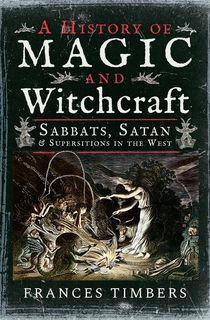
A History of Magic and Witchcraft
Most of us think of witches as starring characters in the Halloween lineup and perhaps as an interesting footnote in the early history of Massachusetts. In A History of Magic and Witchcraft, Frances Timbers provides a fascinating look at the history of witchcraft as a practice and guides readers through the events that allowed the stereotype of the evil witch to dominate culture in the West. As Timbers explains, the ancient world fully accepted magic and practicing witchcraft was fairly commonplace. As history goes on, and with the rise of Christianity and popular media later, the idea of the witch as we know it today begins to form.

Mythology
Edith Hamilton’s Mythology is one of the most famous collections of myths in modern history. Since the 1940s, students have continued to learn about Greek, Roman, and Norse mythology through Hamilton’s book. In addition to re-telling the classic tales, Hamilton provides important historical and scholarly context to each section. This edition of the book, published for Mythology’s 75th anniversary, is also enhanced with several beautiful illustrations.
.jpg?w=640)
The Annotated African American Folktales
This landmark work from two renowned scholars traces African-American history through hundreds of tales passed down through generations. Beginning with surviving legends from various cultures in Africa, Henry Louis Gates Jr. and Maria Tatar illustrate how, as slavery in the Americas threatened to destroy their cultural heritage and break up families, stories continued to play a vital role for slaves and their descendents in the American South and the Caribbean. In addition to the analysis and historical context The Annotated African-American Folktales provides, the book also contains several folktales that have not been in print for nearly 100 years.
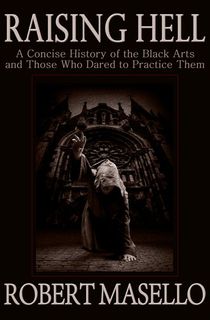
Raising Hell
As long as there have been myths, people have speculated about how they could connect with the world of gods and monsters, of heaven and hell. From this speculation came practices like astrology, prophecy, alchemy, and even necromancy, all commonly grouped together as the black or occult arts. In Raising Hell, Robert Masello traces the development of these practices throughout history, examining the different people who felt drawn to the occult arts, the different methods they used in their search for a world beyond their own, and why societies throughout history have both feared and been fascinated by black magic.

The Power of Myth
Joseph Campbell is one of the most famous scholars of mythology and literary history. His concept of “the hero’s journey”, put together from his own observations of the common traits in world mythology, notably influenced George Lucas when he was writing the original Star Wars movies. In the mid-1980s, Campbell sat down for a series of interviews with journalist Bill Moyers to discuss myths both ancient and modern, their similarities and their differences, and what they can tell us about humanity. The result of these interviews is The Power of Myth.

The Uses of Enchantment
In The Uses of Enchantment, child psychologist Bruno Bettelheim explores the ways familiar fairy tales have shaped children and their view of the world for centuries. As many know, fairy tales often serve as a way to teach children lessons about themselves and how the world works. Bettelheim takes his analysis beyond this, and asks what these fairy tales can tell us about not only the children who heard them, but the adults who crafted them as they sought to make sense of the world around them.
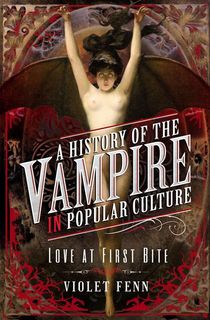
A History of the Vampire in Popular Culture
You don’t need to look further than the enduring popularity of the Twilight series to see that vampires have a grip on pop culture. Vampires have a certain allure that other creatures of myth and folklore just don’t seem to have, but why? Author Violet Fenn searches for the answer to this question in A History of the Vampire in Popular Culture. In her search, Fenn explores why vampires have been connected with a sense of eroticism through the centuries.
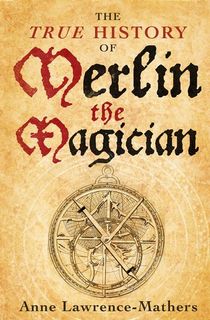
The True History of Merlin the Magician
Arguably the most famous pieces of folklore to come out of the British Isles are the tales of King Arthur. One of the legend’s most colorful characters is the wizard Merlin, who first appeared in Historia Regum Britanniae, written by Geoffrey of Monmouth in the 12th century. In The True History of Merlin the Magician, Anne Lawrence-Mathers sheds light on the historical factors and the historical figures who contributed to the creation of the character of Merlin. From there, she examines the way British society has interpreted Merlin over the centuries to suit different needs in an ever-changing world.
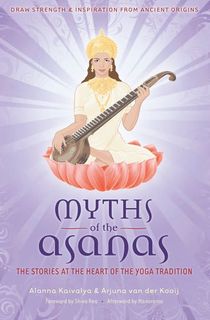
Myths of the Asanas
In Myths of the Asanas, Alanna Kaivalya and Arjuna van der Kooij explore the stories behind some of yoga’s most famous poses. The practice of yoga today is seen as a healthy way to stay in shape and to center yourself, but it has its roots in a series of stories and myths that give vital context to each position. Myths of the Asanas is not only a deep dive into ancient myths, but it is also a text fans of yoga have been using to enhance their own experiences for decades.

The Meaning of Myth
In The Meaning of Myth, psychiatrist Neel Burton examines 12 famous Greek myths and the concept of myth as a whole through a clinical lens. Why did ancient cultures across the world arrive at the same character archetypes in their mythology, and what does that say about the character of humanity as a whole? What exactly is myth, and are there modern myths being formed right now?
After Burton investigates these questions, he tests his theories by turning his gaze to several Greek myths, from stories of gods and monsters to tragedies like Orpheus and Eurydice.
.jpg?w=3840)

.jpg?w=640)

.jpg?w=640)


